When Julius Caesar wrote his account of the conquest of Gaul, he was not writing it as a personal diary, to keep those events fresh in his mind. He was not even writing it to preserve a record for history as such. He was writing it specifically to impress the Roman senate with his abilities of conquest, and he took pains to describe himself as a capable general of war who could – and did – win new territories for the Roman Empire. The account of the conquest of Gaul was, as it were, Julius Caesar’s doctorate.
Caesar made a suitable token gesture of modesty by always referring to himself in the narrative in the third person: ‘Caesar did this, he did that..’, as a way of distancing himself from the fact that he, the writer, was also the star of the story. But knowing the circumstances of why these events came to be written, we also can assume that Caesar beefed things up here and there in the narrative to cast himself in the most favourable light, and any messy [1]setbacks in the campaign were sometimes glossed over.
In Gaul Caesar triumphed, and it became his prerogative to write history in his favour. But taking things one step further: supposing that Caesar had written his account… but that the conquest of Gaul had never actually taken place? Supposing that instead he had taken truly sweeping liberties with events, and had sat in his tent in some secluded corner of Gaul concocting the whole story of the conquest merely to impress? Were we to happen across his account in another millennium or two, and intervening history had become clouded, would we actually realise the subterfuge?
Archaeology can both confirm and refute what we read in scripture. The principal Canaanite city of Jericho can be excavated. But excavations in Jericho have shown that in the era of Joshua it was a city without a [3]wall, so Joshua’s [4]trumpets bringing down the wall (with the help of the Almighty) might make a stirring story, but we have to doubt that the defeat of Jericho happened in the way in which scripture describes. With Jericho, we are confronted with a situation in which the texts tell us one thing, and actual excavations on the ground tell us another. But what about Joshua’s conquest of other cities in the land of Canaan? To go one step beyond: were Jericho and other Canaanite cities even conquered by the Israelites at all?
 |
| The walls of Jericho as they are today. |
It is not so much what archaeological excavations of these cities have turned up. It is more what is not found there. The more excavations have continued, the less signs have been unearthed of any Israelite warfare having taken place. There were no obvious signs of destruction in that time frame, and few weapons. What had happened? And how to explain the fact that the Israelites were so familiar with Canaanite beliefs and customs?
 |
| Jericho pottery from the period 3000BP up to the Middle Bronze Age of 1500BP: the time of the maximum expansion of the Egyptian Empire and its conquest of Canaan. |
No less than other scientific disciplines, archaeology must go wherever the evidence takes it. As a practicing science, it does not exist to confirm what we prefer to believe. The Israelites were a new people without a history of their own. In this Bronze Age time frame, and in this place, a people’s credentials consisted of conquest. You were, so to speak, what you conquered. And if you had not actually conquered anyone, well then, you apparently shuffled the deck to make that happen. And so it seems that the Israelites wrote their own fictitious history of glorious [5]conquest, perhaps as much to give themselves a sense of their own identity as to impress others.
But Canaanite cities already had been conquered by Egypt long before Joshua arrived on the scene. The people whom scripture calls the Israelites probably were displaced refugees from this conquest – and many if not most would have been from Canaan itself. In other words: the Israelites were the Canaanites. This readily explains their familiarity with Canaanite traditions and beliefs – including their original pantheon of their god having a consort: the ‘Elohim’ (‘gods’) of Genesis, which refers to God’s consort, the Canaanite goddess Asherah. The scriptural account of the presumed ‘conquest’ of Canaan under Joshua was first written down some eight hundred to a thousand years after the events described – time enough to embellish things, and to create a catalogue of conquest which never actually took place.
And what a catalogue it is. From Jericho to Ai, from Ai to Makkeda to Libnah to Lachish to Eglon to Hebron to Debir, on and on (Joshua 8:1-onwards). The result is always the same: no Israelite losses are recorded, and all inhabitants of these cities – men, women and children – are slaughtered without mercy. Were this tragic list true, it would mean that the Israelites practiced ethnic cleansing in the land of Canaan on a genocidal scale. And what would that say about the Israelites – and about the God under whose sanction they operated? Do you really want it to be true?
And what a catalogue it is. From Jericho to Ai, from Ai to Makkeda to Libnah to Lachish to Eglon to Hebron to Debir, on and on (Joshua 8:1-onwards). The result is always the same: no Israelite losses are recorded, and all inhabitants of these cities – men, women and children – are slaughtered without mercy. Were this tragic list true, it would mean that the Israelites practiced ethnic cleansing in the land of Canaan on a genocidal scale. And what would that say about the Israelites – and about the God under whose sanction they operated? Do you really want it to be true?
 |
| Accompanied by the Ark of the Covenant, the trumpets sounded, the Israelites shouted, and the walls of Jericho came tumbling down. Or did the Egyptians beat the Israelites to the punch? |
Excavations on site appear to suggest that the whole story in scripture of Joshua opening his conquest of Canaan with the defeat of Jericho (with God as his ally) is a fabrication. Not only did Jericho have no effective defensive wall at the time for the sound of the trumpets to cause to ‘fall down flat’: the city was not even a real going concern when Joshua and his army were supposed to have been there. So it seems that the unknown writers of these texts sat in their metaphorical tent in a corner of the land and fabricated the whole account of the conquest of Canaan.
Even Julius Caesar with his occasional possible embellishments in his account of the conquest of Gaul never presumed to stretch the truth as far as the unknown writers of scripture. Canaan was conquered, as was Gaul – but by the Egyptians many years before the Israelites even existed as a regional force. And when Joshua arrived at Jericho, he would have found many of its buildings in ruins, and its wall already buried in the dust.
Hawkwood
Notes:
[1] The massacre at Ai: I’m being a little uncharitable to Caesar here, as his account generally seems to be an honest one, recounting both victories and setbacks. One crushing defeat in northern Gaul resulted in fifteen Roman cohorts (about 1720 men) being annihilated. Such narrative even-handedness is hard to find in the scriptural account of the presumed conquest of Canaan, which sweeps from victory to victory with truly ruthless savagery on the part of the Israelites, naturally enough with God's sanction, and with the unrealistically negligible loss of thirty six Israelites (Joshua 7:5). In the central city of Ai (the aerial view of the excavations, right) the Israelites indulged in yet another bloodbath, killing all twelve thousand of its inhabitants in a single day (Joshua 8:25). As I point out in this post, the whole conquest of Canaan by the Israelites could well have been fabricated. The pages of the Book of Joshua are so drenched in blood and slaughter that I for one sincerely hope that it is.
[2] Israel: The Dynastic Egyptians, meticulous bureaucrats as always, mention the Israelites by name only once in three thousand years of their scrupulously-recorded history. A granite stele of Merneptah (left, with the hieroglyphs alleged to represent 'ISRAEL' highlighted), son of the famed Ramses II, proclaims tersely that ‘ISRAEL IS LAID WASTE, IT'S SEED IS NO MORE.’ The hieroglyphs on the stele indicate that the Israel referred to was considered to be, not a recognized city state, but a stateless semi-nomadic people. In the interests of accuracy, however, the stele hieroglyphs specifically say, not ‘Israel’, but ‘I.si.ri.ar’. It was its discoverer, the 19th-century archaeologist Flinders Petrie, who concluded that it meant ‘Israel’. But since the land referred to is Canaan, Petrie’s conclusion seems reasonable. Please see also Note [5] below for an explanation of the 'seed' context.
[3] Dating the walls: Archaeologist Kathleen Kenyon established that walls existed, but that these date from the Early, not the Middle Bronze Age. Therefore by the time of Joshua, these walls would have largely disappeared, buried beneath a city that was razed by the Egyptians. These conclusions were however made in the 1950’s. Subsequent further excavations point to Jericho being occupied by a nomadic squatter population in the Middle Bronze Age, when it would have been unfortified. By the time of Joshua in the Late Bronze Age there would have been little left of the largely deserted city to conquer. The city walls revealed in excavations are therefore unrelated to the time frame of the scriptural account. Few examples of the impartial ethics of science are as defined as in the excavation of the city of Jericho. Those who look for ‘proof’ of the Biblical account of a walled city that was destroyed will find what they seek in the ruins of Jericho. But such conclusions must necessarily ignore the discrepancy of centuries in the time frame provided by impartial archaeology.
[4] Two possible options: The entire account of Joshua’s conquest of Jericho can be found in Joshua 6:1-27 (left: Hebrew animal horn shofars). When the Israelite forces entered the city it was another gore fest massacre, with all within the city – men, women, children and the elderly – even oxen, sheep and donkeys – being put to the sword by the Israelites (Joshua 6:21). So either you accept scripture, in which case you must go along with the scenario that the Israelites were brutalized thugs who slaughtered women, children and the elderly – or you accept likely archaeological conclusions, which would let the Israelites off the hook, but would by default mean that the story in scripture is fabricated false witness. Which are you going to choose?
[5] The question of the burnt grain: Dynastic Egypt added Sinai and Canaan to its conquered territories just as Rome added Gaul and other regions. The phrase on the Merneptah stele: "..its seed is no more" was a standard phrase referring to the Egyptian practice of destroying the grain store of a vanquished enemy, knowing that a missed harvest and starvation would be the result. This is exactly what we find at Jericho, where all the cached grain (right) has been burned and left behind. This burnt grain, characteristic of Egyptian conquest, has in part provided the C14 dating of the Dynastic Egyptian conquest of the city, centuries before Joshua's time. This is crucial, as it is clearly not logical that either the Canaanites or the victorious Israelites after them would have been resident in a city which contained existing burnt grain stores. Apparently this burnt grain also had the editors of the Christian fundamentalist Creation Wiki website scratching their heads when they came to write their entry on Jericho. They wonder why the Israelites burned the valuable grain, instead of taking it with them. The conclusion which they arrived at: "the Israelites were told to dedicate everything in the city to the Lord" – which goes to show just how much the shoe can be stretched to fit the foot.
The Empire that got overlooked
The Creation Wiki entry on Jericho nowhere mentions either the dating significance of recent archaeological finds or the fact that Jericho was actually sacked by the Egyptians – or even that Canaan was once part of the Egyptian Empire. Since this information is generally available, I can only conclude that the site editors knew of the information (presented here in my own post) but chose deliberately to omit it because it conflicts with the scriptural account. I have more respect for my readers than that, and if something is known then I’ll include it on this blog, yes, even if it conflicts with my own conclusions. Deliberately excluding material out of a fear that it will weaken one’s case is the surest way of admitting how weak that case is to begin with.
The Creation Wiki entry on Jericho nowhere mentions either the dating significance of recent archaeological finds or the fact that Jericho was actually sacked by the Egyptians – or even that Canaan was once part of the Egyptian Empire. Since this information is generally available, I can only conclude that the site editors knew of the information (presented here in my own post) but chose deliberately to omit it because it conflicts with the scriptural account. I have more respect for my readers than that, and if something is known then I’ll include it on this blog, yes, even if it conflicts with my own conclusions. Deliberately excluding material out of a fear that it will weaken one’s case is the surest way of admitting how weak that case is to begin with.
Sources:
The archaeological aspects of this post have been drawn from the field excavations, researches and writings of: Israel Finkelstein, chairman of the Archaeology Department, Tel Aviv University. Archaeology historian Neil Asher Silberman. Ze’ev Herzog, professor of Archaeology, Department of Archaeology and Ancient Near Eastern Cultures, Tel Aviv University. Kay Prag, DPhil FSA, director of excavations in Jordan, et al. If you have objections to what is written here, please take them up with these academics. I’m just the messenger.
Joshua and the Israelites crossing the Jordan, Rahab with the two Israelite spies, and the priests blowing the trumpets have been repainted for this post from the 19th-century engravings by Julius Schnorr von Caroslveld, and are three of a complete cycle of engravings which von Carolsfeld produced for an illustrated edition (left) of the Bible. His engraving of the birth of Eve features in my other post The Ecstasy of Eve. The versions for this post have been painted by Hawkwood for the David Bergen Studio © All Rights Reserved.
Schnorr von Carolsveld might not always have portrayed things faithfully to scripture (in the third painting here, the trumpets should be shofars, the Levites bearing the Ark should be barefoot, etc.), but his art nevertheless expresses a lively dynamism which sweeps the viewer along with the action.
Schnorr von Carolsveld might not always have portrayed things faithfully to scripture (in the third painting here, the trumpets should be shofars, the Levites bearing the Ark should be barefoot, etc.), but his art nevertheless expresses a lively dynamism which sweeps the viewer along with the action.















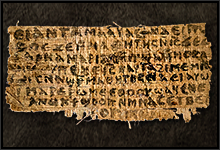




































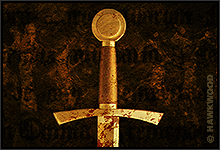



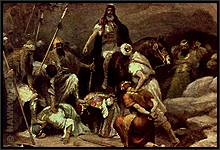
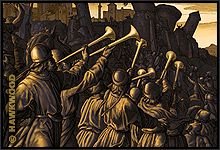








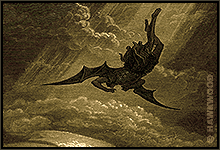




















I tend to agree with archeology most of the times and at this moment too. There's too much to justify in the Scripture.
ReplyDeleteUnless Jericho is a greater revealing of the spiritual reality of Darkness portray as 'Eden'..the walls are not real physical walls but a fools paradise where as the True Paradise is The Heavenly Jerusalem. There are several instances in scripture where one goes 'down to jericho or 'from jericho up to jerusalem...all being a foreshadowing of the Victory of Christ over The Darkness (noting it's referred to as a paradise but of 'the moon'...and the Joshua went around it Seven times, the number of Spiritual Perfection and Joshua is another word meaning almost identically to the name 'Jesus"..so it's War Victory..The Good news...
ReplyDeleteUnless Jericho is a greater revealing of the spiritual reality of Darkness portrayed as 'Eden'..the walls are not real physical walls but a fools paradise whereas the True Paradise is The Heavenly Jerusalem. There are several instances in scripture where one goes 'down to Jericho or 'from Jericho up to Jerusalem'...all being a foreshadowing of the Victory of Christ over The Darkness (noting it's referred to as a paradise but of 'the moon'...and that Joshua went around it Seven times, the number of Spiritual Perfection and Joshua is another word meaning almost identically to the name 'Jesus"..so it's War Victory..The Good news...
ReplyDelete